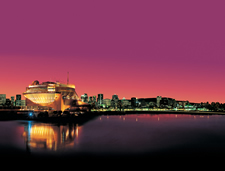In the face of mounting competition, Société des Casinos du Quebéc is focusing on its customers

Entrusted with the stewardship of the province’s four casinos, Société des casinos du Québec is a public entity that falls under the Loto-Québec corporate umbrella. The largest of these properties is Casino de Montréal, housing 100 table games and nearly 3,000 slot machines across nine floors. Major renovation work on the casino began in 2009, with an investment of $305.7m intended to see it remain among the top gaming facilities in North America. The smallest, meanwhile, is Casino de Mont-Tremblant, which boasts 500 slots and 19 tables.
Naturally, Montréal’s casino delivered the bulk of the company’s revenues during the 2010-11 financial year, achieving annual sales of $556.3m. Overall, the four properties contributed $891m to Loto-Québec’s coffers, down on the $935.3m recorded during the previous year. The slide continued this year, with revenues down slightly during the quarter to June 27 - a trend attributed to the disruption caused by modernisation work in Montréal.
"We knew that this step would inconvenience our customers. However, the work is essential and we are confident that, when it is finished, the Casino de Montréal will be in a better position to meet customer expectations," said Loto-Québec’s president and CEO Alain Cousineau.
Although enjoying a monopoly over casinos within the boundaries of the province, Société des casinos du Québec has seen competition grow significantly both in neighbouring Ontario and across the border in the US. Since Casino de Montréal opened in 1993, the number of casinos in its immediate competitive market had grown fivefold from 14 to 75 by 2008.
In the US, for example, it now competes to attract visitors with casinos in New Jersey, Connecticut, New York, Maine, Pennsylvania and Rhode Island. It must now also contend with online gaming and video lottery terminals, although with the latter its parent company enjoys a significant market share.
In 2010, the group unveiled its business strategy for the next three years, recognising the growing competition within the market and the need for improvements to its gaming offering. Outlining its vision for the future, the company announced its commitment to providing “the best casino experience with regard to customer service while offering games that are innovative and diverse.” This principle, it said, guides the work being carried out on its flagship Montréal property to better serve its customers and improve operational efficiency. It is a principle, it hopes, that will set its casinos apart from its closest rivals.

